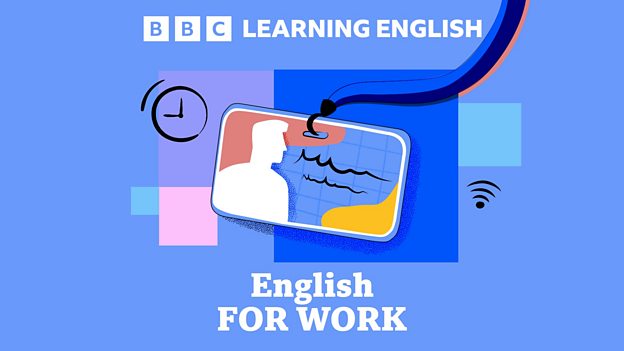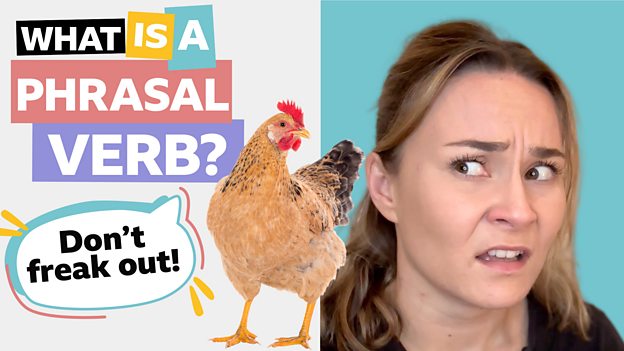6 Minute English
Intermediate level
Social media and teenage health
Episode 231123 / 23 Nov 2023

____________________________________________________________________________
Learn more about technology
Learn more about feelings and emotions
____________________________________________________________________________
Introduction
What are the risks of social media to teenage health and what can be done about them? Beth and Neil discuss this and teach you some useful vocabulary.
This week's question
What percentage of 13 to 24-year-olds use Snapchat?
a) 70%?
b) 80%? or,
c) 90%?
Listen to the programme to hear the answer.
Vocabulary
adolescent
a person aged 10 to 19: between childhood and adulthood
fed
given content by a social media platform
algorithms
a complex set of rules and calculations that prioritise and personalise online content
revenue
the money a company earns, which could come from sales or advertising
onus
responsibility or duty
a losing battle
a fight you cannot win
TRANSCRIPT
Note: This is not a word-for-word transcript.
Neil
Hello. This is 6 Minute English from BBC Learning English. I’m Neil. … Beth? What are you doing? Get off your phone!
Beth
Oh, sorry. And I’m Beth.
Neil
Are you addicted to social media? It wouldn't be a surprise. With so many different apps out there, Snapchat, TikTok, and the latest, Threads, it's easy to spend a lot more time on your phone than ever before.
Beth
Yes. I don't think I'm addicted, but I definitely spend more time on social media than I would like to. However, there are plenty of studies out there looking at how social media affects mental health with some saying it can be as addictive as gambling.
Neil
Research in the US has found that adolescents who spend more than three hours a day on social media have double the risk of developing depression and anxiety. An adolescent is someone aged 10 to 19, between childhood and adulthood. With that in mind, it's no wonder parents are worried. To help with this, the US is currently in the process of regulating social media apps for teenagers. Some scientists think the UK should do the same.
Beth
There has been growing agreement among health experts about the negative, chronic health effects of social media use on teenagers. They have revealed in surveys that social media makes them feel worse about their body image, and 64% of teens have said they are regularly exposed to hate-based content. In this programme, we’ll be discussing how social media affects teenagers, and, as usual, we’ll be learning some useful new vocabulary as well.
Neil
But first I have a question for you, Beth. The app Snapchat is a very common way that teenagers communicate these days. This is partly because messages and photos disappear after a certain time period. But, what percentage of 13 to 24-year-olds use Snapchat? Is it:
a) 70%
b) 80% or
c) 90%
Beth
I'll guess 80%.
Neil
OK, Beth, I'll reveal the answer later in the programme. Now, a lot of social media platforms, such as TikTok, work by showing and suggesting similar accounts and content to those someone has already searched for. Professor Devi Sridhar, the chair of global public health at the University of Edinburgh, thinks this can be concerning, as she told BBC World Service programme, Inside Science:
Professor Devi Sridhar
And this is worrying for example, with young girls and eating disorders, that they're being fed that in an addictive way and the algorithm is saying 'oh they like that content. We want to keep giving it to them because it keeps them on their phones', and I think that's the really vital message here, of any of these apps, is that their revenue comes from advertising.
Beth
Teenagers are being fed content in a way that is addictive. If you are fed something, it means you are given something. In this case, it refers to content, not food. The content is addictive because social media uses algorithms. Algorithms are a complex set of rules and calculations that prioritise and personalise the content a user sees.
Neil
But we need to remember that social media platforms use algorithms to keep users on the platforms for as long as possible because the revenue comes from advertising. Revenue is the money a company earns. They are paid by other companies to use the social media space to promote their products.
Beth
This could be seen as social media platforms prioritising making money over the mental health of users – a worry for parents. Professor Devi Sridhar talked about the challenges of having a teenager addicted to social media on BBC World Service programme, Inside Science:
Professor Devi Sridhar
And so, I think the challenge here, as a parent, listening to this is what do you do about it. And I think the onus has really been put on parents and concerned adults to find solutions on their own. And that means debates with your child over what are you on, are you using this, but it's a losing battle because it's their entire social network.
Beth
Professor Sridhar says that, when it comes to helping teenagers navigate social media, the onus has been put on parents to find solutions. The onus means the responsibility or duty. Parents need to be able to challenge their children when they need to, even if this is a losing battle, a fight they cannot win, as teenagers have their 'entire life' on social networks.
Neil
OK, Beth. I think it’s time I revealed the answer to my question. I asked you what percentage of 13 to 24-year-olds use Snapchat?
Beth
And I said it was 80%.
Neil
And that was… I'm sorry to say, the wrong answer! Actually 90% of people aged between 13 and 24 use Snapchat – quite a lot. OK, let's recap the vocabulary we've learned from this programme, starting with adolescent, a person aged 10 to 19: between childhood and adulthood.
Beth
If you are fed content, you are given content. This is what the social media platform offers you automatically, rather than what you search for yourself.
Neil
Algorithms are a complex set of rules and calculations that prioritise and personalise the content a user sees.
Beth
Revenue is the money a company earns, which could come from sales or advertising.
Neil
If the onus is on someone, it's their responsibility or duty.
Beth
And finally, a losing battle is a fight you cannot win. Once again, our six minutes are up. Join us again soon for more useful vocabulary, here at 6 Minute English! Goodbye for now!
Neil
Bye!
Latest 6 Minute English
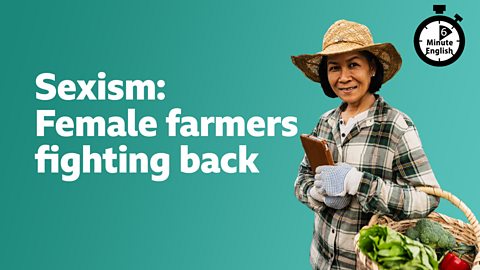
Sexism: Female farmers fighting back
Episode 231228 / 28 Dec 2023
How can female farmers beat rural sexism?
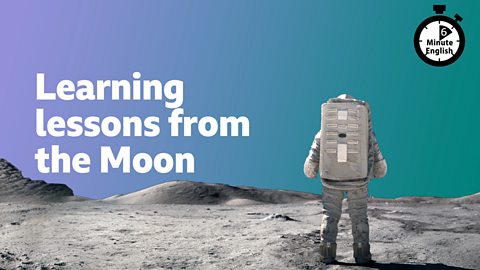


Invasive species: Why don't we eat them?
Episode 231207 / 07 Dec 2023
Could we eat invasive species?

What and where is Little Italy?
Episode 231130 / 30 Nov 2023
Mozzarella, ricotta, cannolis and focaccia... Where are we? Little Italy of course!

Social media and teenage health
Episode 231123 / 23 Nov 2023
What are the health risks of social media for teenagers?

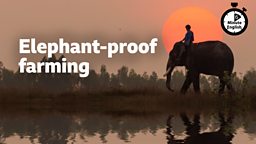



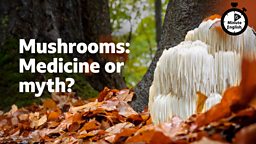


Sounds that make you want to scream
Episode 230928 / 28 Sep 2023
Are there any sounds you find upsetting?




The stories behind our names
Episode 230831 / 31 Aug 2023
What do our names reveal about our culture and family history?


Are you unhappy at work?
Episode 230817 / 17 Aug 2023
Does work leave you feeling bored and exhausted?



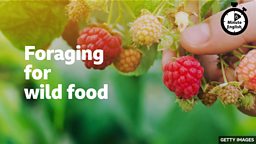



Is it wrong to eat plants?
Episode 230629 / 29 Jun 2023
Should we treat plants with the same consideration we treat animals with?

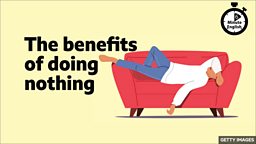
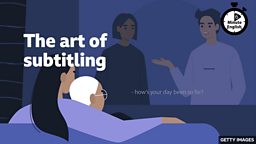
The art of subtitling
Episode 230608 / 08 Jun 2023
Hear how subtitles can help bring TV and movies to life

Ecotourism: good or bad?
Episode 230601 / 01 Jun 2023
We discuss the growing popularity of ecotourism.
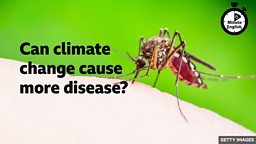
Can climate change cause more disease?
Episode 230525 / 25 May 2023
With warming temperatures, mosquitos are now spreading to new areas, including Europe.
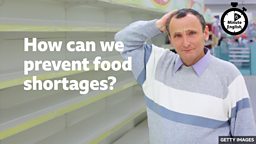


Ice and the origins of life on Earth
Episode 230504 / 04 May 2023
We talk about an essential element for life to thrive.

Women in politics
Episode 230427 / 12 Apr 2023
We discuss some of the reasons why women make up only 26% of the world's politicians.

What's the point of museums?
Episode 230420 / 20 Apr 2023
We discuss the role of museums in the 21st century and the items taken from different countries.
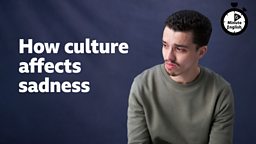
How culture affects sadness
Episode 230413 / 11 Apr 2023
What ways do you think culture can influence sadness?

Would you eat a Kalette?
Episode 230406 / 06 Apr 2023
Hear about a new kind of vegetable making an entrance in British kitchens

Do you get jealous easily?
Episode 230330 / 06 Mar 2023
Let's talk about the ugly green-eyed monster
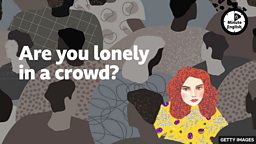

Food and mood
Episode 230316 / 16 Mar 2023
We look at the link between what you eat and how you feel.
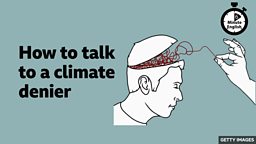
How to talk to a climate denier
Episode 230309 / 09 Mar 2023
The dos and don'ts of trying to discuss science with someone who doesn't believe in it

Losing your mother tongue
Episode 230302 / 02 Mar 2023
Hear the story of a woman who replaced her native Czech for English.
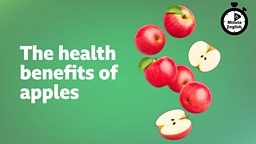
The health benefits of apples
Episode 230223 / 23 Feb 2023
Could 'an apple a day keep the doctor away'?

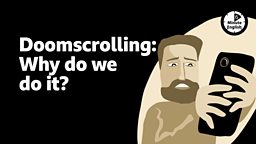
Doomscrolling: Why do we do it?
Episode 230209 / 27 Jan 2023
What is doomscrolling and why are we attracted to bad news? Listen to find out!

Exercise for the lazy
Episode 230202 / 22 Jan 2023
What's the least amount of exercise you should do to stay healthy?

Can AI have a mind of its own?
Episode 230126 / 26 Jan 2023
Hear about the software engineer who became 'friends' with his computer
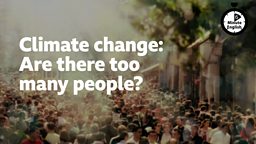
Climate change: Are there too many people?
Episode 230119 / 13 Jan 2023
Does the size of your carbon footprint depend on where in the world you were born? Listen to find out!
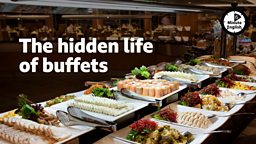
The hidden life of buffets
Episode 230112 / 12 Jan 2023
Neil and Sam discuss buffet meals and the history behind them.

Songwriting
Episode 230105 / 05 Jan 2023
Writing a memorable song isn't easy. So is there an art to good songwriting?


